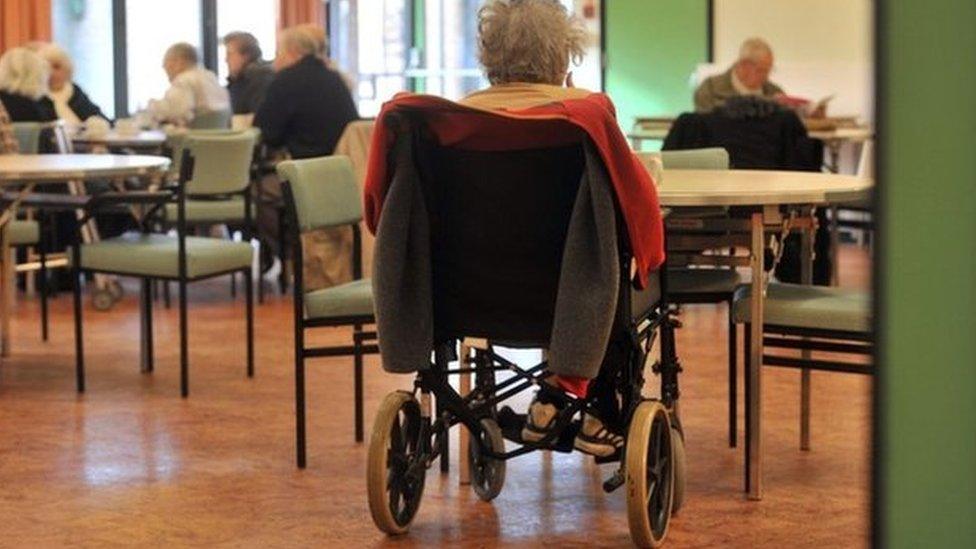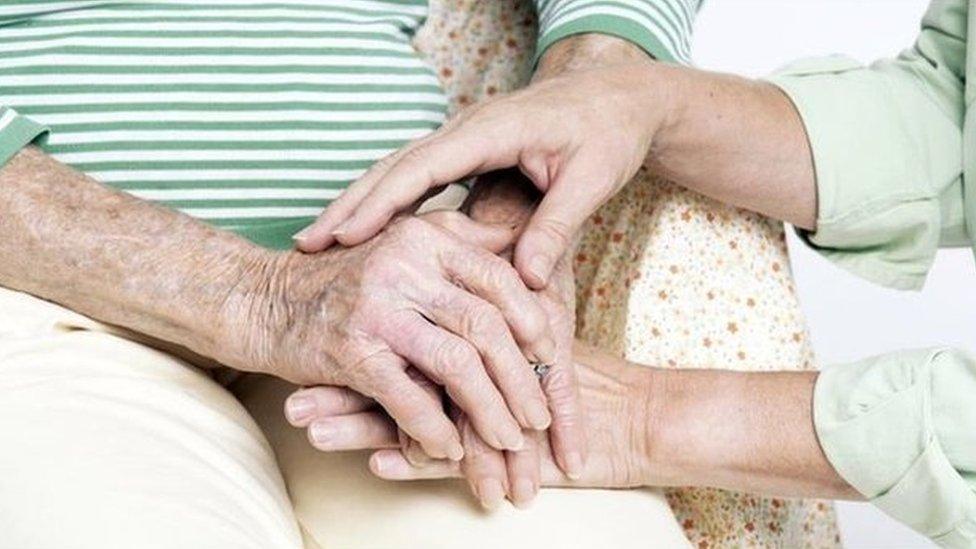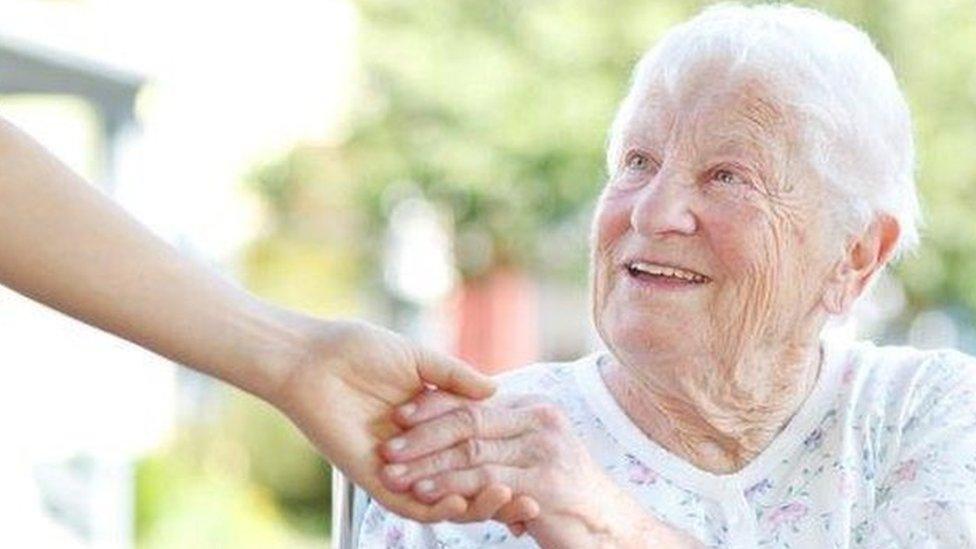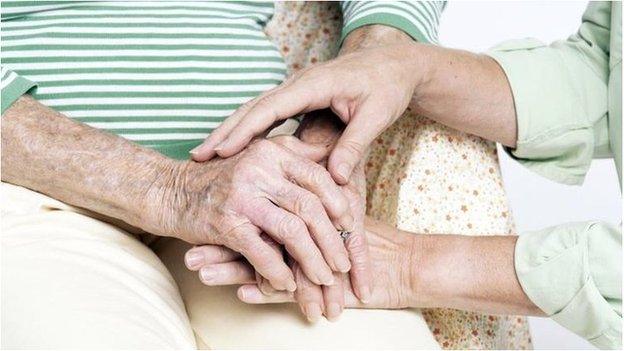Care sector 'at risk despite promises of more money'
- Published

Vital care services for older and disabled people in England remain at risk - despite government attempts to protect the sector, care leaders say.
Last month, George Osborne announced plans he said would lead to an above-inflation rise in care budgets.
But council chiefs, NHS managers and care bosses have cast doubt on those claims in a letter to the chancellor.
It warns his plans would leave a funding gap and put vulnerable people at risk - denied by the government.
Care services, including care homes and services that provide help in people's home for tasks such as washing and dressing, are overseen by local councils.
Budget cuts
Only the poorest get help - those with assets of over £23,250 have to pay the full cost of their care.
Over the past few years, the numbers getting help have fallen as councils have struggled to cope with cuts to their budgets.
But in last month's spending review, Mr Osborne said he was protecting social care budgets by allowing local authorities to raise council tax by 2% and increasing the amount of money available for the Better Care Fund, a joint pot of money used by councils and the NHS to support care services.
He said this - coupled with other changes - would mean care budgets would rise, adding the NHS could not "function effectively without good social care".
But now those involved in providing care services are questioning those claims.

The care system

Unlike the NHS, social care provided in an individual's home or in residential care is not free - only the poorest get help
The number of older and disabled people receiving council help fell by 28% between 2009-10 and 2013-14
Councils spent just under £14bn last year on services
An estimated 1.5 million older people with care needs rely on family and friends for help
One in 10 older people faces bills in excess of £100,000 over their lifetime for care
Find out more

The letter - signed by the Association of Directors of Adult Social Services, the Care Provider Alliance, which represents agencies providing care, and the NHS Confederation - is effectively the sector's response to the plans.
It points out that the amount of money council tax brings in varies greatly, with local authorities in poorer areas worse off.
Meanwhile, the extra £1.5bn of Better Care Fund money, which is on top of the £5.3bn currently being invested, will not kick-in until 2019.
Funding streams
On top of this, local government is seeing two of its main funding streams - the income it gets from the central government grant and business rates - fall by 24% in real terms this Parliament, the Local Government Association says.

Together these account for about a third of council funding.
Ray James, president of the Association of Directors of Adult Social Services, said the result was that councils would struggle to maintain care spending at its current level, never mind increase it.
"Councils have tried to prioritise funding for social care ahead of other services. But its ability to do that seems to have come to an end, so I think we will struggle to put much more into social care," he said.
'Care home closures'
"If that happens, services will be put at risk. We have an ageing population which is increasing demand and have to cope with the introduction of National Living Wage.
"Without action, we will see care homes close and vulnerable people not getting care."
But a spokesman for the Department for Communities and Local Government said councils had enough for care services.
He said the Better Care Fund money coupled with the council tax precept meant there would be another £3.5bn a year in the system by the end of the Parliament.
He added this package should "ensure councils can support older and vulnerable people in their area".
- Published9 December 2015

- Published19 November 2015

- Published7 October 2015

- Published17 July 2015

- Published28 July 2015
